Webinars
Internal Family Systems for Psychosis: Exploring Opportunities and Challenges
Traumasporen – het herstel van lichaam, brein en geest na overweldigende ervaringen met Bessel van der Kolk

When people are taught to believe that health involves being continuously “of one mind,” they may feel broken or invaded when they notice extreme disruptions to their mind, or even what seem to be diverse and competing conscious entities within themselves. And professionals who believe in that same “one mind” perspective are likely to find themselves unable to understand such extreme states, and may instead theorize that the person experiencing them is broken or biologically damaged.
But from the perspective of Internal Family Systems (IFS), it is normal to have “parts” with different perspectives, and none of the parts are bad, although tricky and/or traumatic events may have caused them to take on extreme roles that are not currently helpful. From the IFS perspective, there is no need to eliminate or suppress any of these parts. Instead, people can be assisted in finding their own unbroken internal healer or “Self” which can then help parts shift out of extreme roles and into relationships of greater harmony. This approach offers skillful and compassionate means of helping people resolve conflicts and heal rather than be caught in a lifetime of attempts to suppress “symptoms.”
This webinar will feature a dialogue exploring some unique advantages of using IFS to help with “psychotic” difficulties, as well as possible challenges and strategies to deal with those challenges. The plan is to venture into some deep and provocative topics! This discussion will make the most sense to those who have some familiarity with the basic concepts of IFS as well as humanistic approaches to psychosis: those who lack familiarity with IFS might want to read this brief introduction, or view this recorded webinar introducing the use of IFS for extreme states or psychosis.
About the Panelists
Stephanie Mitchell is a Level 3 Certified IFS therapist, working in private practice in Australia. Stephanie’s origins in mental health work were formed in lived experience roles and this work informs her ways of being with others going through distress.
Stephanie specializes in working with complex trauma, dissociation and experiences that often get diagnosed as “psychosis”. She is a passionate advocate for non-pathologizing ways of understanding and working with clients, outside the constructs of diagnostic labels. To this end Stephanie begins research this year on IFS for “Psychosis” with the University of California, San Francisco and Flinders Uni in South Australia.
Thomas Holmes is a registered social worker who specializes in treating adolescents and adults with various difficulties including, anxiety, depression, OCD, ADHD, and ASD, dissociation, and psychotic disorders. He does so by taking into consideration the person’s developmental and current psycho-social circumstances, such as invalidating and traumatizing environments, and discrimination based on gender, gender identity, sexual orientation, race, ethnic origin, and poverty/ social economic status. The modalities that he mostly works with include Internal Family Systems, Compassion Focused Therapy, and Acceptance and Commitment Therapy, but with a comprehensive understanding of universal emotions and needs for belonging/attachment, safety, pleasure rather than pain, the window of tolerance of stress and stimulation, a sense of individual and collective mastery, and individual and collective meaning.
Ron Unger is a therapist specializing in psychosis, and an educator who has reached thousands of students through courses and seminars on CBT for psychosis, the intersection of trauma, dissociation, and psychosis, and addressing spiritual and cultural issues within treatment for psychosis. He explores ways of understanding extreme states of mind, and possible unique pathways toward transformation, recovery, and healing, on his blog at recoveryfrompsychosis.org. He is currently in a process of learning IFS and how it applies to psychosis, and is finding it a rich addition to other related approaches such as compassion focused therapy.
Julie Kipp, President of ISPS and social worker, will open the webinar. Members of the audience will be invited to ask questions and to take part in the discussion.
Participation fee
A donation of $10 to $50 is requested. Your donation supports the efforts of ISPS (International Society for Psychological and Social Approaches to Psychosis) to advance the education, training and knowledge of mental health professionals in the treatment and prevention of psychosis. Another major aim of ISPS your donation supports is our work towards the best possible partnership between professionals, people with lived experience of psychosis and their family members. If you are unable to give a donation please contact us to enquire about a limited number of free places for this webinar.
The Recording
Unable to attend the event live? No problem. We will send everyone who registers a link to view the recording of the webinar.
Time Zones:
July 13, midnight, British Summer time
We apologize to all those who find the timing inconvenient or impossible, especially those in Europe. Our presenters are from Australia and North America, and we could not find a time to accommodate them and be appropriate for Europe simultaneously. We hope those who cannot attend to access the recording, and we hope to see you at future webinars with times that work better for you.
To register, go to https://ExploringIFSforpsychosis.eventbrite.com
We look forward to welcoming all who can make it to this webinar.
Traumasporen – Bessel van der Kolk

Nog even terugkijken naar.
Gedenken en verbinden – 15 april 2024
Als aanloop tot de studiedag op 18 juni 2024 met als thema:
Generatie na generatie – Spoken uit het verleden.
nodigt het netwerk ISPS Nederland-Vlaanderen u uit voor een bijzonder
webinar op 15 april van 19.30 tot 21.00 uur
Kracht putten uit de levende herinnering aan en het achten van wat was.
Op welke wijze kunnen we constructief respons geven op trauma’s die van generatie op generatie worden overgedragen?
Kan gedenken en achten bijdragen tot het wederom verbinden wat verbroken en vergeten was en er niet langer bijhoort?
En op welke wijze draagt dit alles bij tot geestelijke gezondheid?
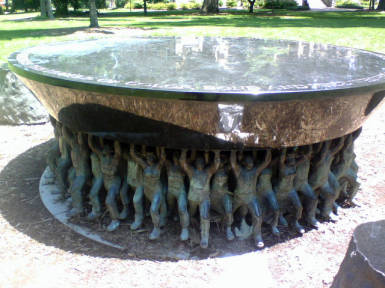
Het webinar verloopt aldus
Na een korte inleiding door de animator wordt een kort filmpje vertoond waarin getuigenis, beelden en tekst een impuls geven tot een gezamenlijke reflectie op deze vragen.
Daarna worden drie panelleden uitgenodigd om spontaan te reflecteren bij het filmpje dat werd vertoond.
Zodat een dialoog op gang kan komen waarbij na een korte pauze de deelnemers aan het webinar met vragen en getuigenissen kunnen aansluiten.
Zo kan een levende uitwisseling op gang komen waarbij in een veilige sfeer ruimte wordt gecreëerd om dit gevoelige thema gezamenlijk te exploreren. Wat verbindend en helend kan werken.
Kan u op één of andere wijze de studiedag niet bijwonen dan kan dit webinar de reflectie rond het thema voeden. Woont u de studiedag wel bij dan is deelnemen aan dit webinar een zinnige voorbereiding op de studiedag.
Nodig op uw beurt vrienden en familie uit tot deelname aan dit webinar dat het lef heeft te benoemen wat onuitsprekelijk is.
De uitgenodigde gasten van het panel zijn:
Erik Thys is psychiater en actief in de psychosezorg. Hij onderzoekt de relatie tussen creativiteit en stigma.
Hij is tevens auteur van het boek “Psychogenocide, psychiatrie, kunst en massamoord onder de nazi’s”.
Jim van Os is psychiater, auteur en voorzitter van PsychoseNet.nl, een succesvolle, multideskundige eHealth Community. In 2013 publiceerde hij het boek “Trauma begrijpen”.
Jim van Os en Simona Karbouniaris beschrijven hoe we allemaal ingrijpende, potentieel traumatische gebeurtenissen kunnen meemaken.
Wat zorgt ervoor dat sommigen van een heftige gebeurtenis ontregeld raken, en dat anderen de draad “gewoon” weer oppakken?
Rianne Levi, zij is IoPT facilitator, 3 principes facilitator en ervaringsdeskundige. Zij is tevens de auteur van “Gestreept door het leven” en schrijft als auteur voor Psychosenet. Ze geeft workshops over ‘Trauma sensitief waarnemen en begeleiden”.
Huguette Beyens animeert het geheel. Zij is bestuurslid van de ISPS, initiator van Huize Poustinia en Het Levenssnoer.
Wie graag meedoet stuurt een mail naar: info@isps-netwerk-nederland-vlaanderen.nl
Je ontvangt dan een betalingsverzoek. We vragen een bijdrage tussen € 15,00 en € 30,00 naar draagkracht. Na betaling ontvang je dan een zoomlink op zondag 14 april voor de bijeenkomst een dag later op maandag 15 april om 19.30 uur.
Dit webinar geldt als een soort inleiding op de studiedag van de ISPS die door gaat in het Vierhuis, op het terrein van het voormalige Apeldoornse Bos. Een plek waar in de Tweede Wereldoorlog op dramatische wijze de bewoners van de toenmalige joodse inrichting werden weggevoerd naar Auschwitz.
Tegenwoordig is het een levend centrum waar mensen met een verstandelijke beperking actief deelnemen aan wat er zoal ter plekke wordt georganiseerd. Een plek vol leven, ontmoeting en uitwisseling.
De gastvrouw van deze plek, Mevrouw Bea Drost, zal de studiedag openen met het oproepen van wat deze plek is overkomen en de klemtoon leggen op de helende waarde van gedenken wat was. Vooral om te laten zien dat het verleden het heden of de toekomst niet hoeft te bepalen. Door te achten wat was, kan opnieuw de kracht van deze plek worden aangesproken en worden daar weer dingen mogelijk die mensen inspireren om hun leven in handen te nemen.
Herdenken kan de zwaarte wegnemen die de wonde open houdt en nakomelingen belast.
Op voorwaarde dat de respons op wat gebeurd is, kansen schept voor verbinding en verzoening met wat deel uitmaakt van de geschiedenis van het individu en de familie.
Uitgebreide info over de studiedag van 18-6-2024 in Apeldoorn
om nog even terug te kijken:
Overweldigd worden: hoe geef ik daar respons op? – donderdag 7 december om 20.00 uur
Alternatives to Coercion – woensdag 6 september om 13.00 uur
Webinar Trauma sensitief waarnemen – 28 augustus 2023
“Soteria meets Open Dialogue” our next ISPS Webinar – donderdag 29 juni 2023 – 18.30-20.30 uur
ISPS Webinar – “Amniotic Therapy” – vrijdag 24 maart 2023
Overweldigd worden; hoe geef ik daar respons op?
met medewerking van Niels Bourgonje, regisseur van de kort-film Skógafoss
Centraal staat de korte film “Skógafoss” van regisseur Niels Bourgonje die in gesprek gaat met een panel bestaande uit een ervaringsdeskundige, een familielid en een zorgverlener.
Niels Bourgonje is een autodidact filmmaker met internationale erkenning. Zijn kortfilms belichten ondermeer maatschappelijke thema’s die aandacht verdienen. Ze haalden in diverse festivals prijzen en Skógafoss kreeg op het Vertigo film Festival de prijs voor beste film, beste regisseur en beste acteur.
De regisseur, zoals hij zelf aangeeft, wil op de eerste plaats de toeschouwer raken zodat, wat hij vertelt, ook door de manier waarop het wordt verteld, wordt versterkt. Zo wordt zelfs het landschap een acteur in het verhaal.
Hij zal toelichten hoe de film ontstond en wat het maken van de film met hem en de acteurs deed. En hij gaat graag in op vragen die door de deelnemers worden gesteld.
Aan het panelgesprek nemen deel:
Als familielid: Rita Van Maurik.
Zij is ervaringsdeskundige, professioneel adviseur en coach op het gebied van familiebeleid binnen de geestelijke gezondheidszorg. Met een diepe kennis van het belang van een optimaal functionerend familiebeleid in de GGZ. Vooral door het instellen van een goed functionerende familieraad.
Als ervaringsdeskundige: Cynthia Dorrestijn.
Zij is medebestuurslid in het netwerk ISPS Nederland-Vlaanderen.
Naast danslessen verzorgt Cynthia regelmatig lezingen en gastcolleges in GGZ en elders. Zij is medelid van de werkgroep “Te Gekke Moeders” verbonden met Stichting Psychiatrie en Filosofie, een groep moeders die postpartum psychose als focus en ervaring hebben.
Als zorgverlener: Kinge Berends.
Zij heeft als psychiater en psychotherapeut speciale interesse voor psychose-zorg en psychoanalytische psychotherapie.
Zij is medebestuurslid van het netwerk ISPS Nederland-Vlaanderen.
Zij is werkzaam in PC Bethanië te Zoersel. Ze werkt onder andere op een kleine residentiële psychose-afdeling in het PC Bethanië in de provincie Antwerpen, België. Haar interesse gaat uit naar het verbeteren van de zorg voor psychose-kwetsbare mensen, alsook naar de kruisbestuiving tussen filosofie en psychiatrie.
Animator van het webinar: Huguette Beyens
Zij ie medebestuurslid in het bestuur van het netwerk ISPS Nederland- Vlaanderen en verzorgt als lid van de redactie de nieuwsbrief.
Ze is lid van de werkgroep Soteriahuizen Vlaanderen.
Het gevoel overweldigd te worden ervaren veel mensen als ontwrichtend en verlammend. Je kan overweldigd worden door heftige emoties die van binnenuit opwellen of door situaties waarin de confrontatie met anderen heftige emoties oproept. Voor een persoon die een psychose ervaart of psychose-gevoelig is, is dit vaak allebei tegelijk het geval.
Gevolg hiervan is meestal dat het ene het ander versterkt en dat je als het ware in een draairad van heftige emoties terecht komt die van kwaad tot erger worden en niet enkel de persoon zelf maar ook zijn naaste omgeving in een heftige emotionele draaikolk doet terecht komen.
Families die hiermee te maken hebben, kennen het gevoel van onmacht dat dan toeslaat en hoeveel energie dit vreet. Jammer genoeg leiden dergelijke ervaringen tot een ontwrichting van het verband in de familie en/of het gezin, waardoor de kracht die kan uitgaan van een hier gezamenlijk doorheen gaan, geen kansen meer maakt.
Dergelijke ervaringen krijgen nog steeds te weinig podium om belicht te worden en familieleden voelen zich nog veel te vaak alleen staan met wat ze op deze heftige wijze beleven.
Om nog niet te spreken over de schaamte om te kort te schieten en de angst om alle grond onder de voeten te verliezen.
Overweldigd worden is vooral een fysieke en emotionele ervaring waarbij het zenuwstelsel aan de noodrem trekt om aan te geven dat er teveel ineens op je afkomt om mee om te gaan. Je kan het als een overlevingsimpuls zien waaruit we kunnen aflezen dat er teveel op je afkomt om alleen mee te dealen en dat support en ondersteuning nodig zijn om alles te kunnen overzien en een keuze te kunnen maken die binnen je mogelijkheden ligt.
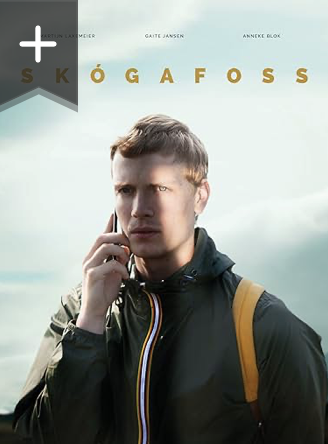
Een dergelijke ervaring wordt prachtig in beeld gebracht door de regisseur Niels Bourgonje in zijn kortfilm “Skógafoss”, die bij de eerste vertoning in publiek op het Scandinavian International Film Festival de eerste prijs haalde, juist omdat deze ervaring zo algemeen menselijk herkenbaar is en zonder franjes en zeer authentiek in de film gestalte krijgt.
Toen de regisseur de film als abstract indiende voor de conferentie “Creating Healing Homes” van de ISPS International in Perugia 2022, kreeg hij in het kader van hoe omgaan met psychose ook een grote waardering.
In januari 2023 werd de film tijdens een workshop voor een een gevarieerd publiek van familieleden, ervaringsdeskundigen en hulpverleners in Kortenberg gedraaid en in de respons op de film werd heel helder dat hij zeer helpend en ondersteunend is om dit thema praktisch met alle betrokkenen bespreekbaar te maken.
Vandaar dit initiatief om nu in aanwezigheid van de regisseur deze film extra aandacht te geven in een webinar waarin we een podium scheppen voor het thema:
Overweldigd worden; hoe geef je daar respons op?
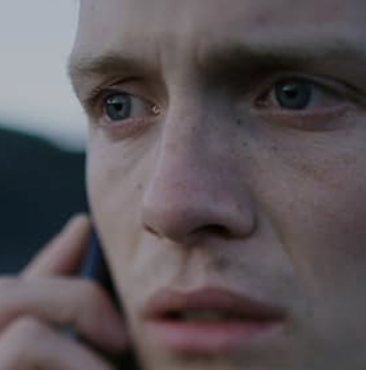
HET WEBINAR
De regisseur zal de film inleiden en kaderen waarop drie panelleden, één persoon met psychose gevoeligheid, één familielid en één zorgverlener in een open gesprek met elkaar hun respons op de film geven.
Daarna kunnen de deelnemers hun respons geven en ook vragen stellen zodat een levendige uitwisseling in dialoogvorm kan ontstaan.
Voor deelname aan het webinar kan je een vrije deelname betalen.
Variërend tussen 15 en 30 euro als steun voor de werking van het netwerk ISPS Nederland-Vlaanderen.
Voor aanmelding volstaat een mail naar: info@isps-netwerk-nederland-vlaanderen.nl.
Het webinar gaat door op donderdagavond 7 dec om 20.00 uur en duurt twee uren.
Gelieve je eigen netwerk aan te spreken en deze informatie door te spelen aan familieleden, collega’s en vrienden die met dit thema in aanraking komen.
Een unieke kans om woorden te geven aan wat te weinig aandacht krijgt en te vaak, juist hierdoor, tot onnodige complicaties leidt.
Zien en durven verwoorden wat speelt, leidt tot in het zicht krijgen van wat nodig is om een veilige omkadering te bieden in situaties waarin je overweldigd wordt door.
“Five top tips for implementing alternatives to coercion”
Hieronder te bekijken een lijst van deelnemers aan het panel
Webinar Trauma sensitief waarnemen
In dit webinar gaan we het hebben over trauma sensitief waarnemen en begeleiden. Hoe kan dit jou en de cliënt helpen? Helpen een andere betekenis te geven aan begrippen als stoornis, beperking, aandoening, of ziekte?
Trauma model van Franz Ruppert
Veelal hebben cliënten in de psychiatrie strategieën bedacht om om te gaan met traumatische gebeurtenissen. Of met pijnlijke omstandigheden in hun leven. Hoe kan het trauma model van dr. Franz Ruppert inzicht geven over gedrag wat in onze maatschappij betiteld wordt als ‘stoornis’. Wat is het verschil tussen het medisch model en trauma sensitief kijken?
Alle verdere informatie en inschrijven hier.
“Soteria meets Open Dialogue” – ISPS Webinar
Op donderdag 29 juni 2023 van 18.30 tot 20.30 uur
We are honoured that Nadia Mahjoub, Huguette Beyens, Dag Van Wetter and Stefaan Huyghebaert, all members of ISPS Netwerk Nederland-Vlaanderen, will join us for this webinar on Soteria and Open Dialogue approaches, to which the audience and panel will respond.
The topic:
A psychotic crisis can be a drastic and alienating experience, both for the person himself and for the people around. The Soteria approach and the Open Dialogue approach are both considered as valuable ways to organise good clinical practice for people with psychosis and their environment. During the last international ISPS conference in Perugia in 2022 these approaches received a lot of attention. The best place to cope with a psychotic crisis is at home where all the people involved can work together in Open Dialogue with each other. However, when the person with psychosis or the family members or the professionals involved conclude that a more intensive ‘being with’ is necessary a Soteria home can be a good solution. Both approaches have a lot in common. No wonder that a group of professionals, people with lived experience and family members found each other in Belgium to explore how this both approaches can be implemented in their country.
Nadia Mahjoub
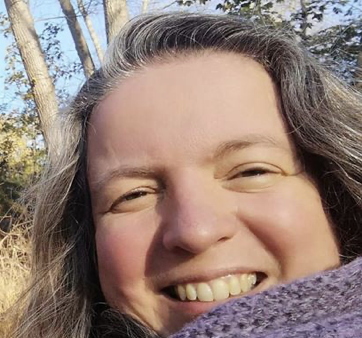
“Why Soteria and Open Dialogue?”
Nadia Mahjoub is 50 years old and has experienced several psychoses. She has been working as a volunteer for the patients’ movement in Belgium for more than 20 years, running peer support groups on psychosis and advocating for a more humane care without coercion. She is a member of ISPS and the Soteria Group in Belgium. She would like to share with you what Soteria and Open Dialogue mean to her.
Huguette Beyens
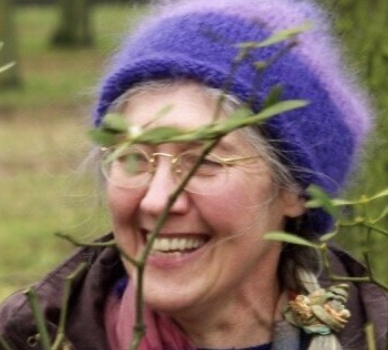
“Merge and keep together: the cornerstone of a Soteria-home”
Huguette Beyens is an art psychotherapist and founder of House Poustinia and companion of the Soteria workgroup Flanders.
Elke Haerick (replaced by Dag Van Wetter)
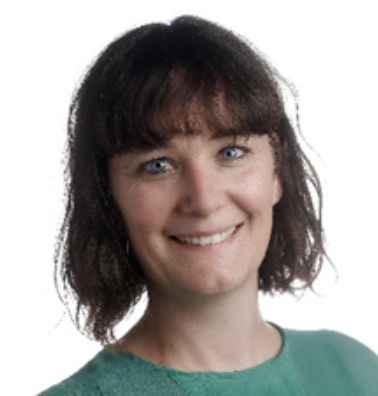
“The Soteria Houses Flanders working group”
Elke Haerick is staff officer at Psyche vzw and companion in supporting recovery-oriented practices and peer expertise education. Elke is president of the Soteria Houses Flanders working group.
Dag Van Wetter

“Open Dialogue in the cultural context of Flanders”
Dag Van Wetter is an ‘Open Dialogue companion’ and staff officer at vzw Psyche, co-creating Open Dialogue practice in Flanders, Belgium. After promoting Open Dialogue development in the region of North-West-Flanders since 2016, Dag is now also facilitating Open Dialogue meetings, supporting teams and co-coordinating projects on the development of Open Dialogue practice in the rest of Flanders. In cooperation with mental health organisations, people with lived experience, people with family experience, social welfare partners and training of health professionals/peer workers, Dag and his colleagues are also actively connecting Open Dialogue practice to strengthening and spreading other community-based, right-based and recovery-based practices.
Stefaan Huyghebaert
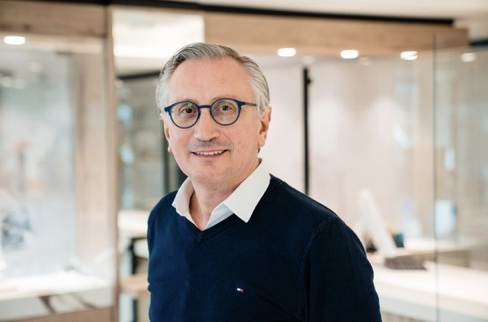
“El Camino Bekegem”
Stefaan Huyghebaert is co-founder and core member of El Camino Bekegem vzw. El Camino Bekegem, where people come together around sensitivity for psychosis. El Camino Bekegem is a meeting place on its way to a temporary stay, together with their loved ones and care providers.
The webinar will also involve discussion with the panel and registrants.
Julie Kipp, President of ISPS and social worker, will open the webinar.
Ludi Van Bouwel, ISPS Executive Committee member and psychiatrist – psychotherapist, will Chair the event.
Participation fee
A donation of $10 to $50 is requested. Your donation supports the efforts of ISPS (International Society for Psychological and Social Approaches to Psychosis) to advance the education, training and knowledge of mental health professionals in the treatment and prevention of psychosis. Another major aim of ISPS that your donation supports is our work towards the best possible partnership between professionals, people with lived experience of psychosis and their family members. If you are unable to give a donation please contact us to enquire about a limited number of free places for this webinar.
Unable to attend the event live? No problem. We will send you a link view the recording of the webinar for up to 14 days after the event.
Register HERE
We look forward to welcoming you to this webinar.
“Amniotic Therapy” – an ISPS Webinar

We are honoured that Professor Maurizio Peciccia has agreed to give the opening talk, to which the audience and a distinguished panel will respond. The event will feature a presentation from Maurizio Peciccia, who will discuss the theoretical basis of amniotic therapy, as well as Jens Roved and Miriam Berges who will both share their practical experiences with amniotic therapy.
The topic:
Amniotic Therapy is a novel form of group therapy that utilizes gestures similar to those used by parents when holding babies. By employing this type of therapeutic communication, individuals can experience affiliative touch, which has the potential to regulate the stress axis, balance neurotransmission, and promote a sense of belonging and attachment within the group. Affiliative touch is also linked to embodiment and can help individuals in distinguishing between their internal and external environments.
The speakers

Professor Maurizio Peciccia, from Italy is a psychiatrist, psychoanalyst and Professor in the Department of Social and Human Sciences at the University of Perugia. He is also the President of ISPS Italy (Italian group of the International Society for Psychological and Social Approaches to Psychosis), Director of the Gaetano Benedetti Institute (School of Psychoanalytic Existential Psychotherapy) and Honorary president of the Italian Art Therapists Association (APIART). He is the author of over 150 publications concerning psychoanalytic oriented psychotherapy and art therapy of psychosis.

Jens Roved, from Denmark, is a voice hearer who suffered from early childhood trauma. He is also a photographer, guitarist, occupational therapist, teacher, father of two and survivor. Although his life has been entwined in psychosis, he was never a ‘patient’ in psychiatric care. Rather he manages to do without medicine. In his own words: “ISPS is like a family to me that I can always reach out to in need of support”. Jens experienced some sessions of amniotic therapy during the ISPS Perugia conference in September 2022.

Miriam Berges, from Germany, is the mother of a 13 year old son. She has worked as a high school teacher for fine arts and latin for almost 20 years. She is an artist, making paintings, mixed media works and video installations. After an overwhelming traumatic experience when she was 35, she decided to explore and find out more of her authentic identity. One result was that she studied art therapy at IKT München (institut for art and therapy Munich). This is where she met Maurizio Peciccia as her art therapy teacher. In 2022 she was in Perugia twice and experienced 10 sessions of amniotic therapy. It opened up a new dimension of ‘being in the world’, and she found it very helpful for her mental, emotional and physical health and psychic stability.
Discussants:
Dag Söderström, psychiatrist and psychoanalyst from Switzerland.
Brian Koehler, psychologist and psychoanalyst from USA.
The discussion will also involve the registrants.
Julie Kipp, President of ISPS will open the webinar and Chair the event (from USA)
Participation fee
A donation of $5 to $40 is requested. Your donation supports the efforts of ISPS (International Society for Psychological and Social Approaches to Psychosis) to advance the education, training and knowledge of mental health professionals in the treatment and prevention of psychosis. Another major aim of ISPS that your donation supports is our work towards the best possible partnership between professionals, people with lived experience of psychosis and their family members. If you are unable to give a donation please contact us to enquire about a limited number of free places for this webinar.
Unable to attend the event live? No problem. We will send you a link view the recording of the webinar for up to 14 days after the event.
Register HERE
Pesach Lichtenberg over Soteriahuizen
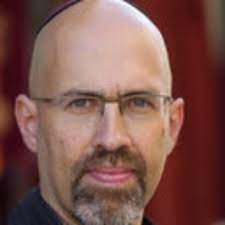
Ontwikkeling van Soteria-huizen in Israël een inspirerende leerervaring met dr. Pesach Lichtenberg
op dinsdag 15 november 2022 van 13.00 tot 15.00 uur
Dr. Pesach Lichtenberg vertelt ons, in het Engels, waarom de Soteria-huizen in Israël in de praktijk een waarlijk alternatief bieden aan mensen die door een psychotische fase gaan.
In plaats van opgenomen te worden in een ziekenhuis, komt men thuis in een (Soteria) huis waar een kleine therapeutische gemeenschap op een veilige manier mensen door een psychotische crisis heen helpt.
Men werkt hier vanuit de “Being With” gedachte.
Het luisterend aanwezig zijn bij.
Hierdoor ontstaat er een veilige, helende ruimte, doordat zowel de bewoners als de begeleiders door een gezamenlijke inzet aan de condities werken om veilig door een crisis te navigeren en zorg te dragen voor wat hiervoor nodig is.
(Soteria betekent oorspronkelijk: genezing, redding, verlossing)
In plaats van afzondering is er daar nabijheid.
Een nabijheid die veiligheid biedt, vragen stelt, aanwezigheid garandeert.
Een tegemoet-treden dat laat zien dat de crisis niet als een ziekte gezien wordt, maar als een normale reactie op een zeer ongezonde situatie die dringend om bevraging roept.
Waar aangepaste medicatie enkel gegeven wordt indien het niet anders kan.
Begeleiders en bewoners werken samen en zetten zich gezamenlijk in voor het runnen van het huis.
Meer dan twaalf jaar ervaring en grondig onderzoek in Israël in ondertussen twaalf door de regering aldaar gesteunde Soteria-huizen, heeft aangetoond dat een verblijf kostenbesparend is en bovenal destigmatiserend werkt.
Dr. Pesach Lichtenberg zal putten uit een jarenlange ervaring als psychiater en vertellen en tonen hoe het er in een Soteria-huis aan toe gaat.
Maar hij laat ons ook kennis maken met de wijze waarop een dergelijk huis maatschappelijk geïntegreerd wordt en hoe de politiek in Israël ook haar schouders aan het geheel leende.
Ervaringen waar wij hier in Vlaanderen enkel maar ons voordeel mee kunnen doen, zoekende als we zijn om ook in ons landsdeel Soteria-huizen van de grond te krijgen.
In een openbare Zoom-sessie zal Dr. Pesach Lichtenberg een inleiding verzorgen van een klein uur. Aansluitend zullen Dr. Elizabeth Anthonis, Nadia Mahjoub en Stefaan Huyghebaert enkele reflecties (over wat ze hebben gehoord, gedacht en gevoeld tijdens het luisteren) met elkaar uitwisselen waarna het publiek in het laatste uur de kans krijgt om eigen vragen voor te leggen.
WIE ER GRAAG BIJ IS,
SCHRIJFT ZICH IN MIDDELS EEN E-MAIL NAAR
info@isps-netwerk-nederland-vlaanderen.nl
Ingeschrevenen ontvangen een betalingsverzoek en na betaling
is de inschrijving definitief en krijg je een dag van te voren een Zoom-link
We vragen een bijdrage naar draagkracht: een bedrag dat ligt tussen € 10,00 en € 50,00
Een organisatie van de Vlaamse Werkgroep Soteriahuizen in samenwerking met ISPS Netwerk Nederland-Vlaanderen.

Hieronder publiciteitsmateriaal om te bekijken en/of af te drukken; handig om in je eigen netwerk te verspreiden.
Zoekt U naar eerder gehouden webinars van de ISPS kijk dan even hier
